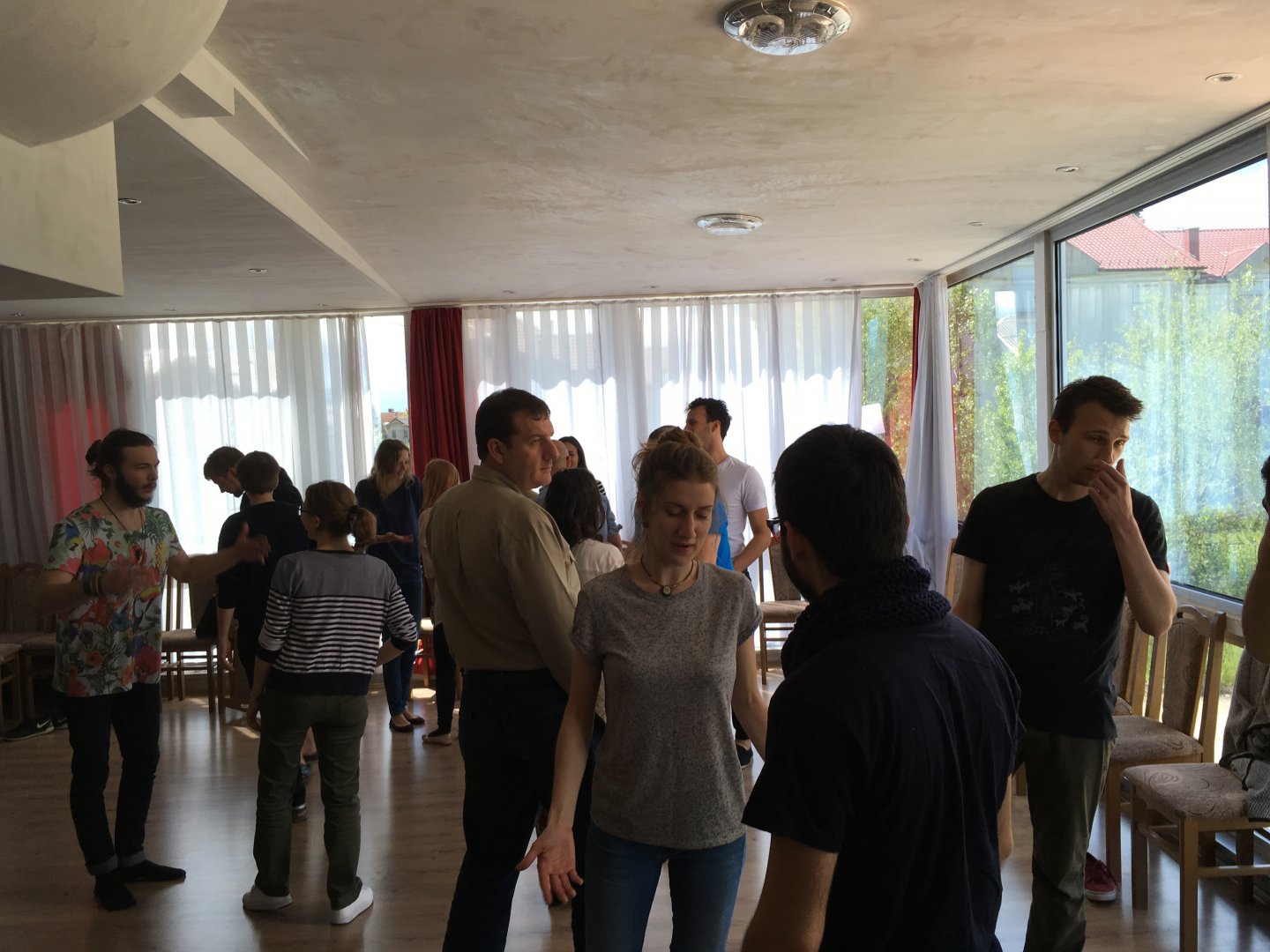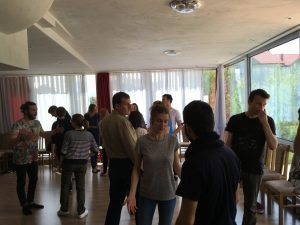- 2016/05/26
Protecting Minority rights using theatre as a tool

 The training course „Minority Rights in Europe – Play and Change“ was organized by the Roma Youth Centre for youth workers, leaders and trainers working in local communities in Poland, Lithuania, Hungary, Romania, Portugal, Macedonia, Italy, Turkey, Germany and France. The course took place between the 11th and the 19th of May 2016 in the small, beautiful city of Struga in Macedonia.
The training course „Minority Rights in Europe – Play and Change“ was organized by the Roma Youth Centre for youth workers, leaders and trainers working in local communities in Poland, Lithuania, Hungary, Romania, Portugal, Macedonia, Italy, Turkey, Germany and France. The course took place between the 11th and the 19th of May 2016 in the small, beautiful city of Struga in Macedonia.
The main objectives of the project was to gain theatre skills necessary for understanding the needs of socially excluded and marginalized young people such as: minorities, migrants, asylum seekers, refugees and Roma; to give information about important forms of exclusion with the explicit aim of breaking negative stereotypes against minorities; to experience human rights and social inclusion education activities and explore how to adapt them in a local context; to motivate and encourage young people to act as multipliers and promote initiatives to foster inclusion of marginalized groups. Further objectives were to improve pride where personal cultural identity is concerned and to share knowledge and experiences on challenges to combat marginalization and social exclusion faced by young people from marginalized European minority communities.
The first night, after the whole group got settled into their rooms, was excellent. Everyone got to know each other in an informal way over a cup of tea. Everyone talked to each other and the night really broke the ice. After a good night’s sleep the whole group met in the main meeting room where the trainers presented the course programme and the methods which would be used throughout the training course.
On the second day everyone had the chance to share their own experience about the realities for minorities, migrants and asylum seekers, as well as to share our opinions on the reasons and root causes of marginalized groups. In the evening we had an intercultural night, with every country representative having the chance to exhibit their country in a fun and informative way. Many participants offered a taste of their country’s traditional food and drinks.
Self-assessment was a big part of the course. Each day there was some time for reflection on an individual basis. I feel that this helped everyone digest the information acquired during the day.
The third and fourth days were dedicated to an introduction to theatre and learning the basics of theatre techniques. We learnt how theatre influences young people, as well as about forum theatre and how it works. During the second part of the day we shared our ideas and discussed the situation of young minority group members marginalized in different countries. We also had time to represent our organizations.
In our free time most of the group decided to go to the nearby city of Ohrid, which is just 20 minutes away from Struga. Here, some of the group decided to go shopping, while others went to see some beautiful churches or just spent it relaxing and having a traditional dishes.
The most interesting part for me was the preparations for the theatre performance. My group decided to prepare a scenario about homeless Roma community members, and to show to the audience how these people are often oppressed. Following this we tried to act out possible solutions, to show how we can help break stereotypes about them.
I have gained a lot of experience from this project. I met a lot of new people and in the future I will use the methods I learnt to teach young people in my country about the marginalization of minorities.
EFHR



